This article is the third in the series on Sleep following “The Land of Nod” and “The Science of Sleep” so best to read those first if you haven’t already.
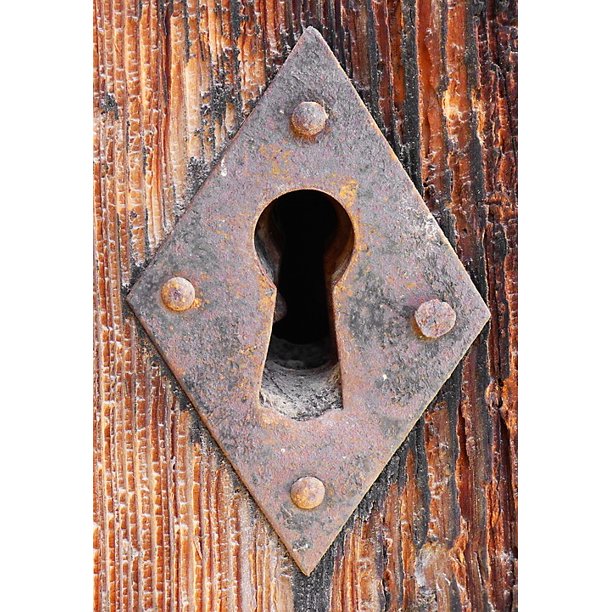
If you are experiencing difficulties getting asleep, staying asleep, or waking up still feeling tired then it would be worth checking through the suggestions in this article. If you have long term sleep difficulties then you have probably come across most of these ideas already, but remember it can take some time to develop a new sleep pattern so if you decide to try any of these suggestions you will have to stick at it for a few weeks
Caffeine Free
No this does NOT mean that you must forego your Cappuccino or cup of builders tea forever, after all caffeine can boost your mood, metabolism and mental and physical performance, which explains why many of us head for the kettle the minute we wake up. The good news is that caffeine is safe for most people when consumed in moderate amounts. However there is a genetic element to out tolerance to this substance, so some people will experience adverse effects after even a very small dose. Caffeine increases alertness by blocking the effects of a brain chemical (adenosine) that makes you feel sleepy. It also triggers the release of the “fight-or-flight” hormone (adrenaline) associated with increased energy. These effects can give rise to nervousness, irritability and insomnia. As caffeine can also cause stomach upset, rapid heart rate and the need to urinate more frequently you can see that it is NO friend of yours if you are not sleeping well.
To be absolutely sure that your caffeine consumption is not adversely affecting your sleep – I would put in place a hard line of no caffeine within 12 hours of bed time. This includes coffee, tea, hot chocolate and cocoa (many peoples go to night time beverage) as well as many fizzy drinks, including the horrifying array of ‘energy drinks’ which are loaded with caffeine and sugar. It can take up to 12 hours for the caffeine from just one caffeinated drink to wear off completely, so work back from your intended bedtime and make sure there is a 12 hour gap between your last caffeinated drink and your bed. Also, if you are getting take out coffee from a cafe, check how many shots of coffee your drink contains, as they tend to have a much higher caffeine content than the drinks we make at home. Remember, its not just how MUCH caffeine you take but how close to bedtime you take it, if you are having a coffee after lunch and hope to be asleep by 10pm you are working against your body. If you enjoy the taste of tea and coffee try the many decaffeinated versions available, but it would be better to stick to drinks that are naturally free of caffeine such as water and herbal tea.
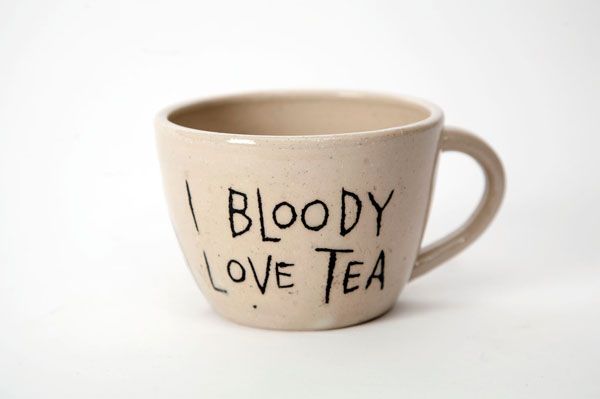
Sugar Rush
Taking regular meals has an impact on sleep, as a drop in blood sugar causes your body to release stress hormones that will shunt sugar into your bloodstream to make you feel more alert.
You will sleep more deeply if you have finished digesting your food before you go to bed. A rich, heavy meal close to bedtime will interfere with your rest and leave you feeling sluggish in the morning. It would be worth trying to move your heaviest meal to an earlier time, perhaps even having your biggest meal at lunchtime and a lighter supper if you are eating later in the evening. Including some slow release carbohydrates in your evening meal can also help: choose from whole grain bread, rice or pasta, quinoa and sweet potato. These foods when eaten alongside certain proteins, increase the absorption of a particular amino acid that gets converted into the hormone that facilitates sleep (melatonin). Refined sugar and “white carbs” (white bread, rice and pasta) can disrupt sleep as they are absorbed immediately into the bloodstream and can make you restless and jittery. If you take an evening snack to ward off waking up because you are hungry then a small handful of almonds, a banana or a kiwi fruit would be better choices than a sugary drink or a muffin, and there is some evidence that these three foods (among others) promote restful sleep. If you have had to skip a meal then a small bowl of porridge may be the best thing to rebalance your sugar levels and help you to nod off.
A glass of wine and a cigarette
Alcohol and tobacco taken near bedtime will interfere with deep sleep. Although alcohol makes you sleepy, the sleep it induces is light, restless, and characterised by periods of wakefulness. If you suffer from long term sleep difficulties you might be better to abstain from alcohol completely as even one drink can throw your sleep rhythm out. Many women find that whilst going through the menopause their sleep improves if they take no alcohol. Remember, it is an addictive drug, it just happens to be the one that is sanctioned by our society. You can absolutely live without it! Tobacco is a stimulant that makes the heart race and blood pressure rise. We all know the health risks to smoking and as an ex-smoker myself, I never found the warnings particularly effective, they just panicked me into needing a cigarette to calm myself back down. You will quit when you are ready, but if you do smoke, have your last one of the day at least two hours before bed.

Are your sleeping tablets keeping you awake?
Most prescription drugs that induce sleep work within ten to twenty minutes, but they can leave you feeling groggy in the morning. They can be helpful for short-term insomnia resulting from a sudden stressful event, as they can break the sleepless cycle, but even the mainstream medical community agrees that sedatives are not helpful in resolving chronic sleep problems. Many drugs that were developed to combat depression are also used to alleviate chronic pain including nerve pain, and as they work by cutting down the amount of R.E.M sleep you get, they may leave you a little fuzzy in the morning. If your quality of sleep is suffering do schedule a review of your medication(s) with your GP. (It is never a good idea to stop taking a prescribed medicine abruptly so talk it through with your doctor first). There are some natural herbal remedies that can help with sleep such as Valerian root, passionflower, and hops, which can be taken before bedtime in either tablet or tea form, and they don’t affect your central nervous system the way prescription sleep medicines do.
Physical exercise
If you have a desk job you will need to exercise your body to ensure good sleep. Studies of elite athletes have shown that they do not require more (or less) sleep than more sedentary folk but their ratio of deep to light sleep is higher. You can replicate this by doing some form of aerobic exercise (that makes you get a bit hot and breathless) at least three times a week. However, bear in mind that aerobic exercise is stimulating so don’t schedule it too close to bedtime. It’s OK to do long, slow stretches before bed though, as releasing muscular tension prepares you for sleep. Focus on floor based yoga poses that you find relaxing. Avoid backward bends (with the exception of bridge pose) as they bring your energy up and are better practised earlier in the day.
Screen Time
There is now a sizeable body of research that connects the kind of light emitted from screens such as televisions, phones, tablets and games consoles with insomnia. Such devices emit what is known as ‘blue light’ which is also found in natural daylight, and this inhibits your body from producing the hormones necessary to induce sleep and encourages the production of the hormones that keep you awake. It is also worth making sure you have access to natural light during the day as this will help keep you wide awake and alert in the daylight hours. A walk outdoors in the morning is the simplest and best way to achieve this, but you can also consider changes like moving your desk closer to a window. The standard advice is to be away from any kind of screen for at least one hour before you want to be asleep. But many of us watch TV until we feel ready for bed, while others watch TV IN bed. And how many of us take our phones with us into the bedroom? If you are not getting enough quality sleep, it is well worth doing a screen detox for an hour before bed. You might find that after a few days you notice a difference. Aside from the light issue, when you are looking at a screen your brain is active. You may well feel like you are relaxing with a box set or unwinding playing a video game, but your brain is not relaxing, it is working hard to process images and sounds, or to follow a plot line, or strategise if you are playing computer games. Your brain needs time to recover from such periods of intense activity and you are not going to fall asleep until it has.
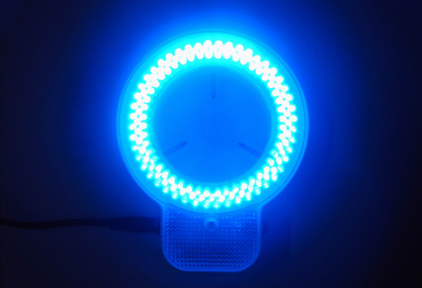
Bedtime routine
If you have ever looked after a baby or settled a new puppy or kitten into your family you know that it can involve many sleepless nights. It takes time and perseverance to establish a sleep routine. So if you would like better quality sleep, consider establishing a bedtime routine that you stick to as a matter of course, as this gives your brain time to ‘power down’ and signals to your sub-conscious that it is time to sleep. This routine can then trigger your body to start to produce the hormone that makes you sleepy (melatonin). Make a warm drink that is free of caffeine (herbal teas containing Valerian root are great natural sleep aids) , write in your journal, read or meditate. A gentle stretch to ease away the tensions of the day feels lovely, as does a bath or shower especially if it is candlelit. If you share a bathroom with others and know that you will be interrupted the minute you relax, then instead of getting frustrated by the inevitable knock on the door, opt for a footbath instead as you can do this outside of the bathroom. You don’t need a ‘foot spa’ just a large plastic bowl deep enough for the water to cover your feet . Add a few drops of a relaxing essential oil, Epsom salts or some bubble bath/shower gel, remember this has more to do with creating an ASSOCIATION with sleep than anything else so you can use whatever you to hand. Have the water nice warm water to encourage good blood flow to the feet and commit to doing NOTHING for 5 or 10 minutes until your feet feel warm all the way through. No books, phones or other activities here, just rest. When you are done dry your feet give them a little rub over with some moisturiser and put on some warm socks . Empty your bladder just before you go to bed (even if you don’ t think you need to) then its teeth, any lotions potions or medications and off to the boudoir.
Setting the stage
When you think about it, surprisingly few people have the luxury of a room to themselves dedicated to sleep – people living in bedsits, house shares or halls of residence, and now with the new era of Working From Home more of us will have an office in our bedroom. Many parents will have a baby sleeping in their bed or beside their bed, and it is not uncommon to wake up with children in your bed that were most definitely NOT there when you fell asleep. If you live with your partner you are most likely ‘sharing a bed’ though this is more accurately known as ‘fighting for a decent share of the bed.’ If your partner is restless in their sleep, sleep talks (or walks) or snores you are more likely to get woken up in the night (and more likely to plot a murder). A truce can often be achieved by investing in an eye mask and ear plugs. Separate beds or even bedrooms are less common in our culture, though this is often as much to do with lack of space as anything else. Make no mistake about it, your sleep is AS essential as nourishing food and clean safe drinking water, so if you are not getting enough sleep at the very least consider having a duvet each if you continue to share a bed. Not only will you sleep better, but you might stay married longer too. And not sharing a bed with your partner does not mean the end of your sex life (unless you both want it to) whereas chronic sleep deprivation just might. There is no earthly reason why you can’t retire to separate beds or even rooms after sex. (If its good enough for the Queen…)
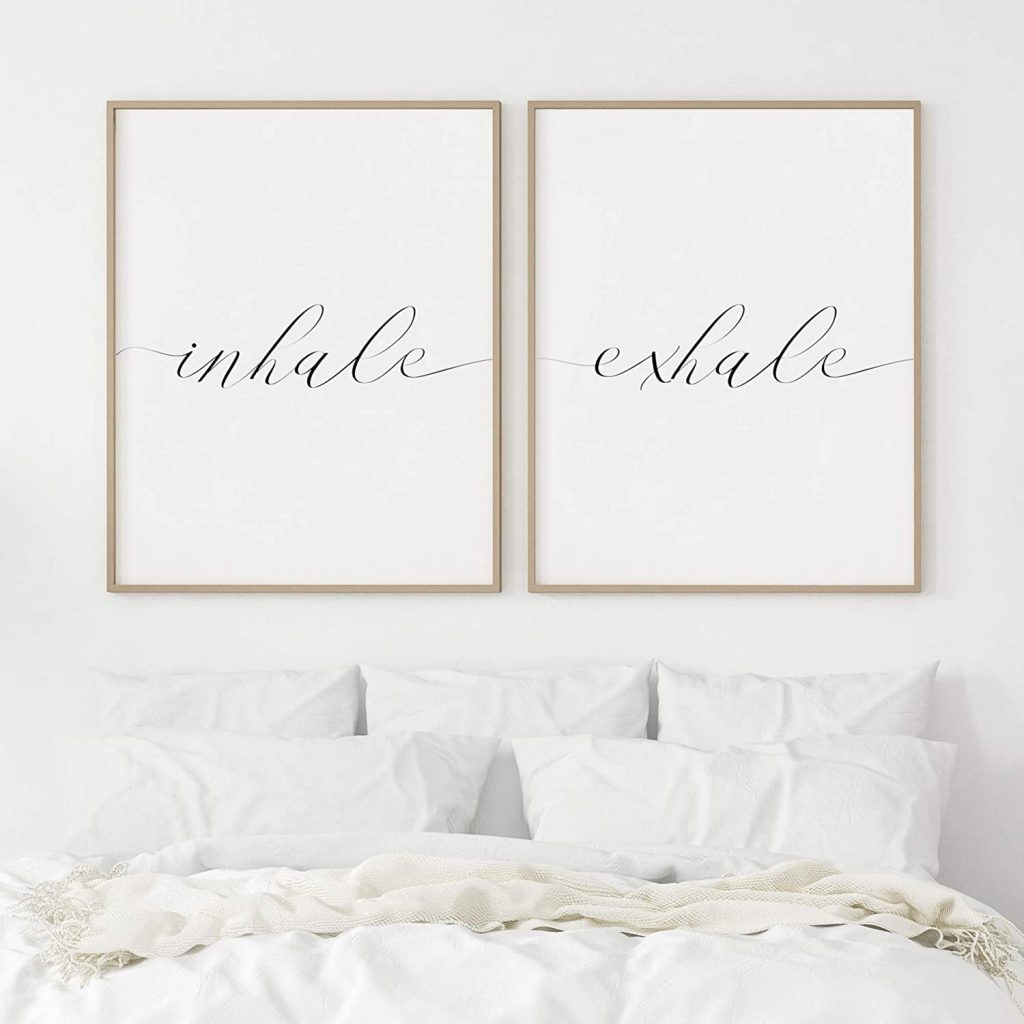
Hot and Cold
If you are waking up in the night because you are too hot or too cold these are two of the easiest problems to remedy if you sleep alone. If you feel the cold at night, wearing pyjamas, paying attention to the tog rating of your duvet, or how many layers of blankets you use, warming the bed with a hot water bottle or electric blanket can all help. If you run hot in the night then sleeping in the nude with lighter covers can help as can having the window open. Research suggests that we sleep better in a slightly cooler room (around 18 degrees is often cited as the ideal temperature for sleep). But what happens if you share a bed with someone who has the opposite preference to you? Well firstly you need to work out what constitutes a preference, and what is a sleep requirement. For me personally as a menopausal woman, having the window open on all but the coldest of nights is a ‘sleep requirement’ as if I am too hot I cannot sleep. Whereas, whilst I prefer to sleep with the bedroom door shut, this is a preference and I sleep fine if the door is ajar. If you feel the cold more than your partner then having individual bed covers makes sense so that you can have a toastier duvet or more layers of blankets. There is no earthly reason why you cannot wear a fleece hat as well as mittens and socks in bed if it does the tricks. If you find it too cold with the window open and happen to share a bed with a menopausal woman, remember, she cannot control the hot flushes and a cooler room is the only thing that will help her. She is also prone to murderous rages so bear that in mind. Think about switching sides of the bed or moving the bed further away from the window so that you are not so close to any draughts. Again separate beds or even bedrooms can sort this issue out once and for all (as can divorce though this option CAN prove rather expensive). Negotiation is key if you share a bed or bedroom with another person.
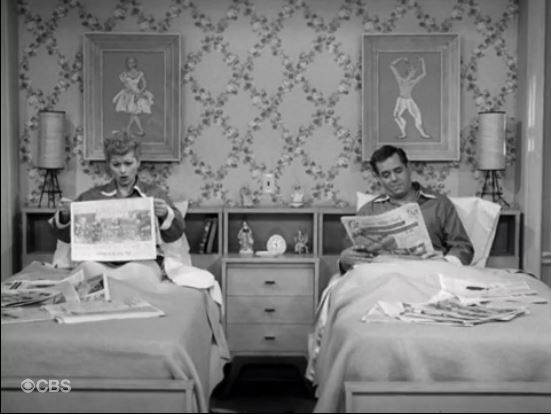
See, hear….
At least half of your sleep is ‘light’, and whilst you are in a light phase of sleep you are easily woken. Often it is the intrusion of light or sound that wakes you, though you may not realise this at the time, you just suddenly find yourself wide awake for no apparent reason. So let’s consider what role your eyes and ears may be playing in your night time dramas.
Eyes: Your eyelids alone don’t shut out all light, so either wear an eye mask when you are ready to sleep or investigate other potential light sources from both inside and outside your bedroom. If light from outside your house is waking you (car headlamps going past your house, your neighbours overly zealous security lights coming on every time a cat walks past) then you need to attend to what is covering the window. Thicker curtains or black out blinds might be the answer. You can also get black out liners to put inside your existing curtains and these are inexpensive and relatively easy to install. If it’s light from elsewhere in the house then call a house meeting. Other members of the household need to be made aware if your sleep is broken by them turning on a landing or bathroom light when you are asleep. In my bathroom at home I have a battery powered ‘motion sense light’ which comes on when someone comes into the bathroom but emits a very low light, enough so you can do whatever you need to do in the bathroom but not enough to wake a light sleeper. You could do the same in the landing. You may find there are light sources inside your room that are disturbing you: numbers on a digital clock or devices that are on charge, both of which are easy to remedy by turning the clock to the wall or putting something in front of it, and moving devices on charge out of the bedroom or out of sight. You are hard-wired to respond to failing light by getting sleepy, so ambient lighting can be really important in the bedroom such as lamp-light to read by, or candles burning (but make sure you blow them all out before you nod off). If you are frightened of the dark then think about investing in a night light or have a lamp with the lowest output bulb that you can find. If you have to get out of bed for any reason during the night then see how little light you can introduce to the situation, so that your ‘wake up’ hormones are not stimulated.
Ears: you are more likely to become accustomed to a noise if it happens on a regular basis (which is why people can learn to sleep soundly when they live close to a railway or busy road) but a sudden or unfamiliar noise may wake you even when you are deeply asleep. Ear plugs can cut out unwelcome night noises if you can tolerate them, and if those noises are coming from other members of your household then call a meeting and ask for more consideration after you go to bed. (This does not work on babies). Some people need absolute silence to fall asleep and stay asleep whereas others find some sounds very soporific . It’s different strokes for different folks, some people have the radio on all night and will wake up if it is turned off (familiar noise can be soothing) others listen to quiet ambient music, or sound effects from nature such as rain falling or a forest at night or use talking books to get them off to sleep. Technology can be a boon if you do find some sound helps you fall asleep, as you can set a timer or have a virtual assistant such as Alexa to turn the sound off after a given time. A new one to me was the discovery of the Autonomous Sensory Meridian Response (A.S.M.R) used by many insomniacs to lull them to sleep. This can be anything from the sound of hands folding and smoothing laundry to hair being brushed to a quiet voice whispering and there are lots of A.S.M.R recordings available for free on the internet.
smell, touch….
When it is finally dark your senses of touch and smell can bring comfort and help you sleep. When I had a newborn and a toddler in my bed most nights as well as a cat, a snoring husband and an office in my bedroom I used to buy a particular fabric softener that I only used on bedding and pyjamas, and that scent was connected in my mind with sleep. There are all kinds of smells that we can use to form an association with sleep and they need not incur expense such as freshly ironed bedding or the smell of the face cream you use before bed. Some essential oils promote sleep such as Chamomile, Lavender, Sweet Marjoram and Ylang-ylang among others which you can use in a diffuser, or add to water and spray into the room. All that really matters is that you choose a scent that for you equates with feeling relaxed and take it from there. Your sense of touch is hugely important especially if you are very sensitive to certain textures. I have quite a few heightened sensory responses, so for me cutting labels out of nightwear, and having smooth crumb free sheets could be the difference between a good night and a bad one. Some people respond to a weight on the body by relaxing so for them a weighted blanket or heavy bedding is key. You can also create your own “comforter” a small piece of material that need be no bigger than a flannel, out of a fabric that you enjoy feeling underneath your fingertips: silk, velvet, wool, cotton, whatever it may be, so that you hold this in your hand as part of your bed-time routine. And by the way teddies are not just for children, many adults still have a ‘cuddler’ on the bed or an extra pillow to hug as it brings comfort and makes us feel safe.
The princess and the pea

If your sleep is severely compromised then it is always worth checking your bed to see if there are any issues there. Clearly sleeping on a collapsed mattress or one with springs sticking in your back will not be helping the situation, nor will a mattress that is too firm or too soft. Mattresses are very expensive pieces of kit so first check that the bed frame itself is not broken. It is not uncommon to find broken struts or slats on a bed in which case it would be better off on the floor or on a make shift frame to allow air to circulate such as a futon base (and these are often available second hand very cheaply and for free on sites such as Freecycle). In my student days I slept on a very old thin futon mattress with all the give of a park bench but a base made out of old pallets made it much easier to sleep on. A mattress topper can breath new life into an old mattress at a fraction of the cost. Many mattresses benefit from being turned regularly not just back to front but head to toe as well as this prolongs their life and prevents sagging. They also need a good hoover when you change the bedding as this can help with things like allergies which could also be waking you up in the night if you are wheezing coughing or needing to blow your nose. If you can afford to replace your mattress do your research, try out as many beds as you can in store and channel the budget towards the mattress rather than the frame unless you have cash to splash. Pillows are a whole other can of worms. Some sleep with none some with several but often our pillows are not doing our necks any good. It’s like the porridge in the Goldilocks story we want it to be just right, and what works for each of us will be different. There are now pillows designed for different sleep positions and these can be a game changer for some people. Most pillows can be laundered at home and benefit from being washed regularly, especially if you are prone to allergies, but will still need replacing when they stop giving enough support. A stiff neck in the morning should trigger a pillow buying mission!
Safety First
In order to fall asleep and stay asleep we need to feel safe. If your brain perceives any kind of threat to your safety it will respond by keeping you awake and alert. Think about what makes YOU feel safe when you are in bed. Do you need the bedroom door shut to feel safe, or do you feel more relaxed if it is left ajar? What about the position of your bed in your bedroom? Some people need the door in clear sight to feel at ease, others feel safer with their bed tucked away behind a door. Some sleep better closer to the floor, some higher up in the air, some in the middle of the room, and others against a wall. My needs changed as I got older. In my younger days I would always opt for a spot against the wall and behind the door, I felt safe there. After I had kids and became a single Mum I took on the role of ‘protector’. I could then only sleep if my bed was in the middle of the room and in clear view of the door. Subconsciously I knew I could leap out of bed either side and be out of the door in a heart beat from this position and that actually helped me sleep more soundly. For the same reason I cannot sleep with an eye mask or ear plugs as I feel safer if I know that I would wake easily should I be required to do so. Everyone is different its about finding what works for you.
I hope that has given you some food for thought, please let me know what you have found helps you sleep well, it would be great if as a yoga community we could create a resource for our brothers and sisters who are awake at all hours, so if you know of a technique, a book, or anything else for that matter that has worked for you, please leave a comment on the website and I will start getting that together xx Michelle

Headspace is an app I use for my teenager just for the Sleep music, it has limited free content so there is probably better ones out there. The repetiveness of the same music every night helps I think.
Also cold feet prevents me from going to sleep so warm fluffy socks just for bedtime helps too.